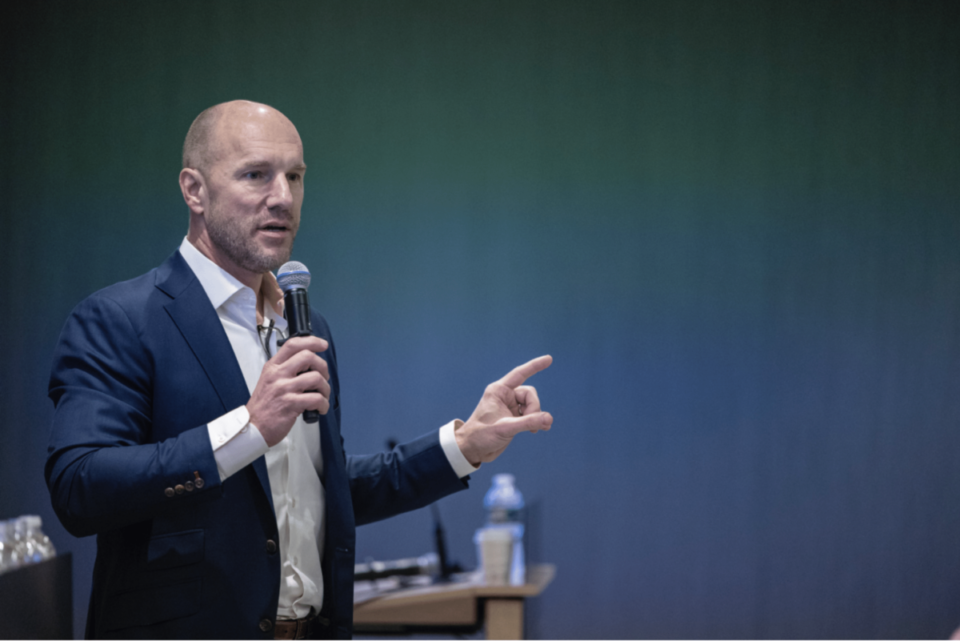“Without big data, you are blind and deaf and in the middle of a freeway.”
That quote is frequently attributed to organizational theorist Geoffrey Moore and is striking for the alarming, unsettling feeling it evokes. Stripped of my senses amid traffic running at 70 miles an hour or more? No thanks.
And yet, the private markets are often data deserts, where there is not nearly enough easily accessible information for an outside eye to entirely make sense of what’s going on in real time. But for LPs, that increasingly isn’t cutting it anymore—they’re demanding more data from firms that’s up-to-date and detailed, said Canoe Intelligence CEO Jason Eiswerth.
“People are looking to get more timely information, more complete and more granular information, and with that, really be able to understand what they’ve invested in currently, and to be able to make more intelligent decisions going forward,” he told Fortune.
Eiswerth would be in a position to know: Canoe provides analytics and insights focused specifically on the alternative investments space, with an eye especially towards serving LPs. The company processes over 25 million documents and 300 million data points annually.
Now, Canoe has raised $36 million for its Series C, Fortune can exclusively report. Goldman Sachs led the round, with participation from previous investors F-Prime Capital and Eight Roads. This raise represents a 3x jump in Canoe’s valuation, but the company wouldn’t disclose that number. (Come on, guys! Isn’t this about data transparency?)
As Derek Zoolander might say: data on alternative investments, so hot right now—BlackRock just acquired Preqin for $3.22 billion. To Eiswerth, that giant price tag and the timing of the deal both aren’t an accident and connect back to Canoe’s own value proposition.
“There’s an analog there,” he said. “Part of BlackRock’s thesis is that there’s going to be a need for more data and to provide a better level of transparency. There’s ultimately going to be an emulation in the private markets of what’s going on in the public markets. There have been indexes, benchmarks, and ETFs to allow people to not only understand but invest more broadly with broader exposure across the public markets. There’s an expectation—and I believe this is going to happen—that something similar will occur in the private markets.”
Eiswerth, who left a family office to join Canoe in 2020, said that part of what’s happening is pretty simple: LPs are looking at “their private and public markets portfolios together” and making decisions accordingly. And the more data they have to do that, the better. Eiswerth also had what some may even call fighting words.
“One of the reasons BlackRock purchased Preqin is because Preqin has an enormous amount of data available to them, from the documents that they look at or the funds they track,” he said. “I would argue that Canoe has a broader set of data and that we’re seeing more in real-time than Preqin is.”
One of Canoe’s clients is global alternative investments firm Hamilton Lane, which took the leap from being a client to an investor and invested in Canoe off the balance sheet. That’s a relatively rare occurrence, the sort of move Hamilton Lane makes once or twice a year.
“No one else to me, when I look around the landscape, is of their size and has their capability at that scale,” said Griff Norville, Hamilton Lane’s head of technology solutions, citing Canoe’s ability to work with everyone from family offices to large institutions.
The total addressable market, as it so often is, remains unclear. But what is clear is this: The Canoes and Preqins of the world are trying to solve a problem that LPs are willing to pay to see solved, even if the price tag is high. Because this is high-stakes stuff.
So, I don’t blame them—I too would pay up to avoid being devoid of my senses in the middle of a fast-moving highway.
See you tomorrow,
Allie Garfinkle
Twitter: @agarfinks
Email: alexandra.garfinkle@fortune.com
Submit a deal for the Term Sheet newsletter here.
Joe Abrams curated the deals section of today’s newsletter.
This story was originally featured on Fortune.com

